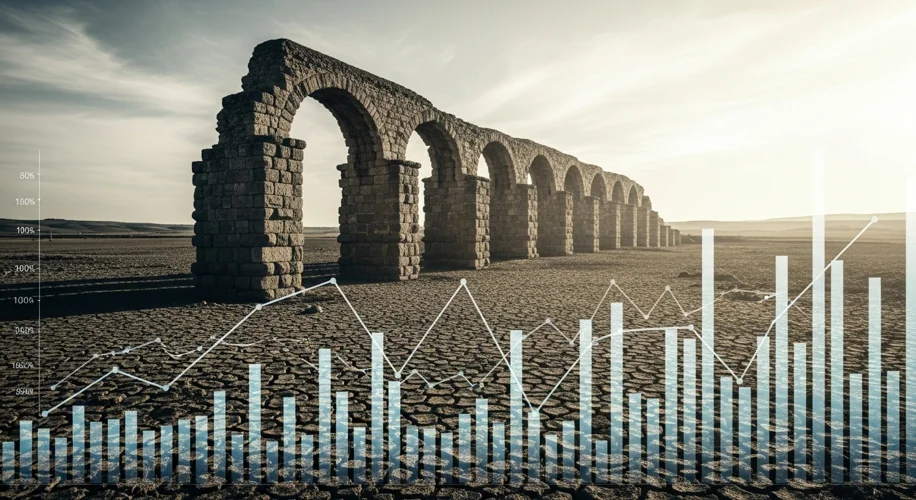Most of us focus on quarterly earnings reports, interest rate hikes, or the latest crypto pump. But what about the really big picture? I’m talking about forces that wiped out entire civilizations. If you think macro trends don’t hit your portfolio, history has a few brutal lessons for you.
We’re often taught that ancient empires fell due to wars, political strife, or economic mismanagement. True, those played a part. But drill down, and you’ll find an undeniable pattern: environmental collapse. Floods, prolonged droughts, and even subtle shifts in sea levels didn’t just inconvenience people; they fundamentally shattered economies and societies.
Take the Akkadian Empire in Mesopotamia, one of the earliest empires, around 4,200 years ago. It thrived on irrigated agriculture. Then, a massive, century-long drought hit. Rivers dried up. Crop yields plummeted. Food became scarce. This wasn’t just a bad harvest; it was an existential threat. The highly centralized system couldn’t cope, leading to widespread famine, internal conflict, and ultimately, the empire’s disintegration. Their financial system – based on grain – completely imploded.
Move to the Mayans in Mesoamerica. For centuries, they built incredible cities and complex societies. Around the 9th century CE, many of their southern cities were abandoned. Why? While multi-faceted, archaeological and climate data points strongly to severe, prolonged droughts. Water systems failed. Agriculture collapsed. Urban centers became unsustainable. People dispersed, and the political structure dissolved. Their wealth, tied to land and labor, vanished as the land became infertile.
Even the mighty Roman Empire wasn’t immune. While its fall is complex, climate shifts played a role. The end of the Roman Warm Period and the onset of the Late Antique Little Ice Age brought colder, wetter weather to parts of Europe. This impacted agriculture, spread disease, and put pressure on their borders, fueling barbarian migrations. A weakening agricultural base meant less tax revenue, more strain on resources, and increased social instability. It was a systemic shock that amplified existing fragilities.
So, what does this mean for your money today?
These weren’t isolated incidents. They were a stark reminder that environmental stability is a foundational pillar of any economy. When that pillar cracks, everything else shakes.
- Supply Chain Vulnerability is Real: Ancient empires depended on localized agriculture. Today, our global supply chains are infinitely more complex, but equally vulnerable. A drought in Brazil hits coffee prices worldwide. Floods in Southeast Asia disrupt electronics manufacturing. Understanding and hedging against these climate-related supply chain risks is critical for any long-term investment strategy.
- Resource Scarcity is a Ticking Clock: Water, arable land, rare earth minerals – these are finite. Climate change exacerbates scarcity, leading to price volatility and geopolitical tension. Smart money isn’t just looking at companies that consume resources, but those that manage them efficiently, develop alternatives, or create new resource-saving technologies.
- Systemic Risk Amplification: Climate events don’t just cause direct damage. They trigger migrations, political instability, and social unrest – all factors that directly impact market stability and investment security. Ignoring these systemic risks is like investing in a company without looking at its balance sheet.
History doesn’t repeat itself exactly, but it rhymes. Ancient civilizations, despite their ingenuity, failed to adapt to significant environmental shifts. They didn’t have predictive climate models or global financial markets to diversify. We do. The lesson here isn’t just about preserving the planet; it’s about preserving your wealth. Analyze the environmental resilience of your portfolio. Invest in solutions, not just problems. Because unlike those empires, we have the data – and the opportunity – to see the storm coming and build stronger foundations.

